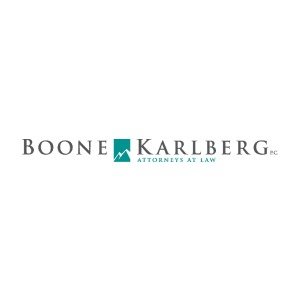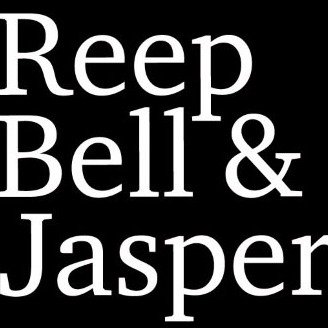Best Foreclosure Lawyers in Montana
Share your needs with us, get contacted by law firms.
Free. Takes 2 min.
Free Guide to Hiring a Real Estate Lawyer
Or refine your search by selecting a city:
List of the best lawyers in Montana, United States
About Foreclosure Law in Montana, United States
Foreclosure is the legal process through which a lender takes possession of a property from a borrower who has defaulted on their mortgage. In Montana, the foreclosure process is primarily non-judicial, but judicial foreclosure is also possible. Montana law outlines the specific steps lenders must follow to reclaim property and protects certain rights of homeowners. Understanding the basics of foreclosure is essential for homeowners facing financial hardship or those wanting to support friends or relatives encountering this difficult situation.
Why You May Need a Lawyer
Foreclosure can be a complex and overwhelming process for homeowners. You may need to consult with a lawyer for several reasons, including:
- You have received a notice of default or trustee’s sale and are unsure of your rights.
- You want to explore alternatives to foreclosure, such as loan modification or a short sale.
- You believe your lender has not followed proper legal procedures.
- You have experienced unexpected life events that impact your financial situation, such as job loss or medical emergencies.
- You are a tenant in a foreclosed property and want to know your rights.
- You are facing possible eviction after a foreclosure sale.
- You suspect fraud, improper notice, or predatory lending practices.
- You want to defend against a judicial foreclosure or challenge a non-judicial foreclosure.
- You need assistance negotiating with your lender.
- You want help understanding federal and state protection laws that may apply to your situation.
Local Laws Overview
Montana foreclosure law is governed by state statutes and is unique compared to other states. Here are some key aspects of foreclosure law in Montana:
- Non-Judicial Foreclosure: Most foreclosures in Montana are non-judicial, meaning they do not go through the court system. Instead, the lender follows a specific process outlined in the mortgage or deed of trust and state law.
- Notice Requirements: Lenders must provide notice of default before proceeding with a trustee’s sale. The notice of sale must be published and mailed to the borrower at least 120 days before the auction.
- Right to Cure: Homeowners usually have the right to cure the default (bring the loan current) before the sale date, thereby stopping foreclosure.
- Redemption Period: Unlike some states, Montana does not generally provide a right of redemption after a non-judicial foreclosure sale. However, there may be a limited period in some judicial foreclosures or other rare cases.
- Deficiency Judgments: After a foreclosure, the lender may seek a deficiency judgment against the borrower if the sale does not cover the full loan balance, depending on the circumstances and if the court allows it.
- Protections for Tenants: Federal and state rules may provide certain protections for tenants residing in foreclosed properties, often requiring proper notice before eviction.
- Foreclosure Alternatives: Homeowners may explore alternatives, such as loan modification, forbearance, deed in lieu of foreclosure, or short sale, often with legal guidance.
Frequently Asked Questions
What is the most common type of foreclosure in Montana?
Most foreclosures in Montana are non-judicial, meaning they happen out of court through a process set out in the deed of trust and state law.
How long does the foreclosure process take in Montana?
The process usually takes several months. The lender must provide at least 120 days’ notice before the sale, which gives homeowners some time to respond or seek assistance.
Can I stop a foreclosure once it has started?
It may be possible to stop a foreclosure by paying the overdue amount, negotiating a loan modification, or exploring other lawful remedies before the property is sold.
What notice am I entitled to receive?
Montana law requires that you receive a notice of default and a notice of sale that is published and mailed to you before the sale takes place.
Can the lender collect more money from me after the sale?
If the sale does not cover the total amount owed, the lender may seek a deficiency judgment, subject to specific legal limitations and court approval.
Do I have a right to redeem my property after it is sold?
Generally, in Montana’s non-judicial foreclosure process, there is no post-sale redemption period. Judicial foreclosures may provide limited exceptions.
Will foreclosure affect my credit score?
Yes, foreclosure can have a significant negative impact on your credit score for several years.
Are there programs or alternatives that can help me avoid foreclosure?
Yes. You may qualify for loan modification, forbearance, refinancing, short sale, or deed in lieu of foreclosure, sometimes with governmental or lender assistance.
What protections do tenants have in a foreclosed property?
Tenants are entitled to proper notice before being required to move out, and federal law may give renters extra time to find new housing after a foreclosure sale.
Do I need a lawyer for a foreclosure in Montana?
While not legally required, consulting with a lawyer can help you understand your rights, evaluate possible defenses, and explore alternatives to foreclosure.
Additional Resources
If you are facing foreclosure in Montana, these organizations can provide helpful information and support:
- Montana Legal Services Association: Provides free or low-cost legal help for qualifying individuals facing foreclosure.
- Montana Department of Commerce - Housing Division: Offers counseling and resources for homeowners in financial distress.
- Consumer Financial Protection Bureau: Offers guides and tools for understanding foreclosure and communicating with lenders.
- U.S. Department of Housing and Urban Development (HUD): Offers housing counseling and resources for avoiding foreclosure.
- Local bar associations: Can provide lawyer referrals and clinics for foreclosure-related issues.
Next Steps
If you are facing foreclosure or are worried about missing mortgage payments, take action as early as possible. Here are some recommended steps:
- Read all notices and correspondence from your lender carefully and keep copies for your records.
- Reach out to your lender immediately to discuss your options- some lenders may be willing to work with you.
- Explore free or low-cost housing counseling and legal aid services in your area.
- Gather all loan documents, payment histories, and correspondence related to your mortgage.
- Consult with an attorney who specializes in foreclosure or real estate law to understand your rights and develop a strategy for your situation.
- Attend any required mediation sessions or court hearings, if applicable, and bring your documentation.
- Do not ignore legal notices- missing deadlines can end important rights and options.
Facing foreclosure can be stressful, but understanding your rights and seeking timely advice can make a significant difference in the outcome. Legal and housing professionals in Montana are available to help you navigate this challenging time.
Lawzana helps you find the best lawyers and law firms in Montana through a curated and pre-screened list of qualified legal professionals. Our platform offers rankings and detailed profiles of attorneys and law firms, allowing you to compare based on practice areas, including Foreclosure, experience, and client feedback.
Each profile includes a description of the firm's areas of practice, client reviews, team members and partners, year of establishment, spoken languages, office locations, contact information, social media presence, and any published articles or resources. Most firms on our platform speak English and are experienced in both local and international legal matters.
Get a quote from top-rated law firms in Montana, United States — quickly, securely, and without unnecessary hassle.
Disclaimer:
The information provided on this page is for general informational purposes only and does not constitute legal advice. While we strive to ensure the accuracy and relevance of the content, legal information may change over time, and interpretations of the law can vary. You should always consult with a qualified legal professional for advice specific to your situation.
We disclaim all liability for actions taken or not taken based on the content of this page. If you believe any information is incorrect or outdated, please contact us, and we will review and update it where appropriate.
Browse foreclosure law firms by city in Montana
Refine your search by selecting a city.














